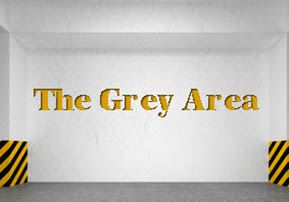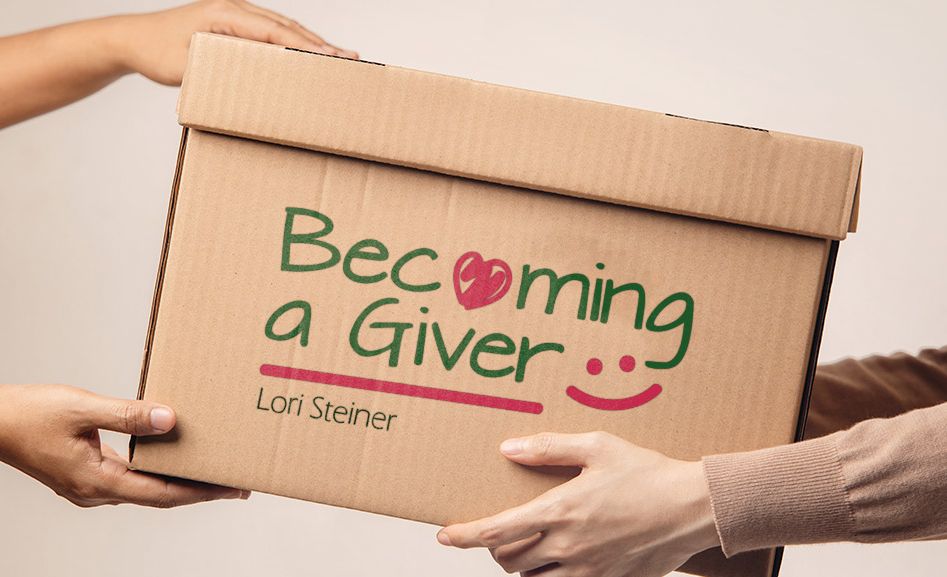
The Grey Area
The gray area is the home territory of the power of fantasy; here, a person is easily tricked into thinking that light is dark and dark is light...

Translated by Rabbi Lazer Brody
The Yetzer Hara, the evil inclination, is constantly trying to erase the distinction in our minds between good and evil, attempting to trick us into thinking that certain transgressions are righteous acts and that mitzvot are undesirable.
Once a person knows how to recognize evil, he can steer clear of it. It’s therefore easy for a person to refrain from doing something that the Torah prohibits explicitly, such as eating pork or observing the Sabbath. The evil inclination won’t bother telling an observant Jew to eat a ham sandwich or to take a ride in the car on Shabbat. Even if a person would do so, Heaven forbid, he’d know that he did wrong and most certainly regret it. But in a place where good and bad are mixed – the gray areas – differentiating between good and evil becomes much more difficult. The gray area is the home territory of the power of fantasy; here, a person is easily tricked into thinking that light is dark and dark is light.
Guarding one’s eyes and guarding one’s tongue are two examples of areas where the evil inclination has a field day. Until a person clarifies the truth in his mind that he must guard his eyes and his tongue with no compromise, the yetzer hara will easily trick him into looking at women and talking about other people. Not  only that, the yetzer will tell him that he’s doing a mitzva, convincing him that by not looking at a certain woman, he’s embarrassing her or acting like a prude. The yetzer has all types of traps and ploys to trick people into thinking that a lie is truth, that evil is good and that dark is light. He’ll tell the gullible individuals that guarding one’s eyes is a stringency or an edict that no one can possibly heed in this generation. He succeeds because the gullible person’s mind is still in the stage of chaos before he has separated between the darkness and the light. In other words, he has yet to establish the truth in his mind.
only that, the yetzer will tell him that he’s doing a mitzva, convincing him that by not looking at a certain woman, he’s embarrassing her or acting like a prude. The yetzer has all types of traps and ploys to trick people into thinking that a lie is truth, that evil is good and that dark is light. He’ll tell the gullible individuals that guarding one’s eyes is a stringency or an edict that no one can possibly heed in this generation. He succeeds because the gullible person’s mind is still in the stage of chaos before he has separated between the darkness and the light. In other words, he has yet to establish the truth in his mind.
If a person really knew how serious looking at any woman other than his wife, mother or daughter was, he’d be just about guarding his eyes as he is about avoiding pork or bowing down to an idol. The Torah doesn’t mince words in outlawing looking at women: “And you shall not wander after your heart and your eyes, which you stray after them” (Numbers 15:39). The Rambam says in the Laws of Teshuva (Chapter 4, Law 4): “He who looks at women and thinks nothing of it, saying, ‘did I have intercourse with her?’, doesn’t realize that this is a heinous crime, for the eyes lead to the ultimate physical transgression.” As such, looking at women is one of the twenty-four offenses that stand in the way of teshuva.
A person must consequently clarify to himself the borders and guidelines of halacha, or religious law. The eyes are the gate to the brain, for everything a person sees is engraved on his brain. If a person sees filthy images, he contaminates his entire being. We see this clearly: anyone who freely looks at whatever he desires, whether in the street, on the internet, or on television and movies, loses all desire for holiness. He won’t be able to learn Torah or pray. And what has he gained in return? Nothing but fantasies; such is the result when a person fails to clarify the truth.
The same goes for guarding one’s tongue. One who isn’t completely familiar with the laws of speech – what is allowed and what is not – will fall prey to the evil inclination constantly and say things that are definitely forbidden. He thinks he’s OK, for everyone else does the same. And even when he knows in a general way that he shouldn’t speak badly about anyone, his evil inclination will tell him that this case is different: “You must tell the boss about your colleague’s mistake – your livelihood depends on it!” Or, “You must tell everything you know about the young man – for a shidduch, everything is permissible!” He’ll make mistake after mistake because of his failure to clarify the truth, which in this case means his failure to learn the laws of guarding one’s tongue. And, his evil inclination will readily provide him with a new excuses for violating the laws.
The evil inclination derives its power from a person’s failure to know the seriousness of his transgressions. Would a person speak about others if he knew that he was causing himself to be judged stringently in the Heavenly Court at the same moment? Most definitely, not. When one knows the outcome of his actions, he’s far more cautious.
People are prone to look at women because they have strong lusts that they’re unable to overcome. They’re prone to speak in a derogatory manner about others because that makes them feel better about themselves.
The evil inclination also undermines a person’s good deeds when that person hasn’t fully clarified the truth and doesn’t yet realize the value of what he’s doing. For example, when a person wants to pray at length, the evil inclination will tell him that he’s acting like a show-off, for everyone has finished and he’s still standing and praying. When a person wants to give charity, the evil inclination says, “Slow down! Your wife and children come first!” When he finally sits down to learn Torah, and if he doesn’t turn his cell-phone off, the evil inclination will convince him that every single call or text message is more urgent than his learning.
All the above stems from a person’s failure to separate between light and darkness. Once he’s in the gray area – without having clearly delineated between right and wrong or good and evil – he’s in trouble. But once he knows clearly the difference between the two, the evil inclination and its power of fantasy will have no control over him. That’s our job in Elul, to ask for Hashem’s help in differentiating between good and evil, dark and light. All we have to do is ask and He’ll surely help us, amen!







8/18/2013
The Center I was thinking about this on Shabbat, when the sea split and we walked across, with two walls of water on each side. Many thoughts after that, prayer, to stay centered, not to lean to the left or to the right, and then the narrow bridge.
8/18/2013
I was thinking about this on Shabbat, when the sea split and we walked across, with two walls of water on each side. Many thoughts after that, prayer, to stay centered, not to lean to the left or to the right, and then the narrow bridge.